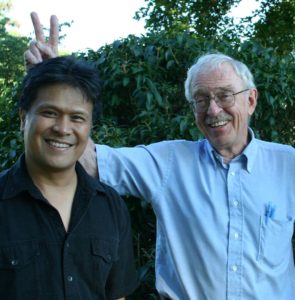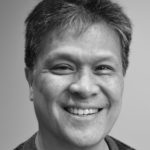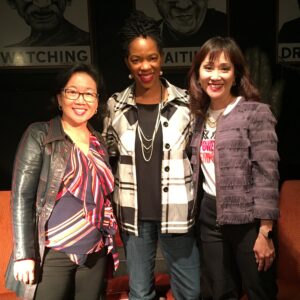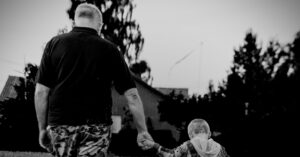
Dr. Ronald J. Sider passed away on Wednesday, July 27, 2022. Tributes and articles regarding his legacy have cropped up everywhere from The New York Times to Christianity Today and a growing number of personal blog entries and Facebook posts in between. With the exception of one piece I’ve come across—Al Mohler’s predictably myopic and insensitive “tribute” in World—all the words offered up have been affirming and honoring of the man and his legacy. I’ll try not to be redundant here, except to say that I was one of many whose world was turned upside down by his bombshell of a book, Rich Christians in an Age of Hunger in the early 1980s. Beyond that, I just need to be personal here. His death has been like losing a parent to me; indeed, Ron Sider was my spiritual father. He was my mentor, a former colleague, and friend.
Ron began to make an impact on my life years before I met him. Rich Christians and several other of his books, especially Completely Pro-Life and One-Sided Christianity? (republished later as Good News and Good Works), ruined any chance of me ever assuming a status-quo, middle-class, culturally Christian existence. To pursue anything less than to live out the radical implications of the gospel among the poor, oppressed, marginalized, and traumatized was to waste my life. Thanks a lot, Ron.
When I was an undergrad, the organization he founded—ESA, now CSA (Christians for Social Action)—used to help students establish chapters on their respective college campuses. I quickly got involved in the chapter being formed at my small Christian college in Southern California. I became an ESA member, contributing money I didn’t have on a monthly basis and participating in chapter activities that ranged from marching at pro-life rallies (my placard read: “Rights for women, born and unborn”) to making noise at a military base for nuclear disarmament.
What Ron and ESA were promoting was as exhilarating as our awareness of the world’s problems was heavy. I was only a few years into my newfound faith in Christ, but I had already detected an un-Christlike disconnect in the church between personal faith and social engagement. I hadn’t yet been fully contaminated by the fundamentalist-modernist debates that plagued Protestantism at that time, but the let-the-world-go-to-hell-cuz-me-and-Jesus-are-good kinds of words that came out of the mouths of some of my evangelical friends just didn’t smell right. I called (and call) it “bad breath theology.” What did I get myself into? Is this what it means to be a Christian?
Before I said “yes” to Jesus in dramatic fashion at a youth rally at age 17, I stood up for underdogs, spoke out against the establishment that seemed bent on maintaining the injustice of the status quo, got involved with Greenpeace to save whales and seals, and so on. Yes, I was impacted by the social activism of the ’60s generation that went before me. So when I got wind of Ron Sider and his brand of Christian faith, I perked up. To follow Jesus, he said, meant to devote one’s life to cultivating a daily, living, personal relationship with God, which in turn flowers into works of compassion, justice, and reconciliation, as well as faithfulness to the politics of Jesus in the public square.
Wait a minute. Personal and social? Evangelism and justice? Spirituality and hands-on socio-political involvement? I’m in with that, all the way in. This both/and kind of faith—i.e., holistic, integral—resonated with the Jesus whom I was getting to know in my readings of the New Testament.
I was convinced Ron was on to something. So I began to follow Ron as Ron followed Christ (1 Cor. 11:1). I read every book he published and every article I could find. If he was scheduled for a public lecture even remotely close to where I lived at any given time, I went. I remember dragging my father-in-law to an advertised lecture by Ron Sider at Linfield College in McMinnville, OR, in the mid-1980s. On the drive home, my father-in-law, a Presbyterian minister of the liberal ilk who was somewhat leery of my evangelical leanings, said something like, “Your guy succeeded in offending everyone from Left and Right. I’m impressed. If you keep listening to him, son, you’ll be alright.
I also remember attending a public debate between Ron and an outspoken critic of his by the name of K. Lloyd Billingsly. I don’t remember exactly when and where now, but I do remember finding extremely compelling Ron’s argument for an economics built more on compassion and justice and less on self-interest and personal wealth. What impressed me even more, however, was the patience and humility he maintained as Billingsly railed against him. If there is such a thing as a nice prophet, Ron was it. You felt the holy sting of his words not because he was yelling at you, but because you were being confronted by the truth.
I strove to live out the truth—the vision and values of the kingdom of God as Ron defined them. For me, that translated into returning to my homeland of the Philippines to work with, for, and among the poorest of the poor for 10 years. I learned how to engage in community development, helping to establish a micro-loan program for entrepreneurs among the poor, forming village banks, preschools, and pharmacy co-ops in extremely impoverished areas. It translated into helping local churches establish community ministries that ran such programs, as they also provided Bible studies, community prayer, evangelism, and worship. It also translated into doctoral work in holistic mission studies. The footnotes in my dissertation read like a Ron Sider bibliography. I largely credit/blame Ron Sider for giving shape and direction to my life, ministry, and scholarship.
Around the same time that I was finishing up my PhD studies at the Graduate Theological Union in Berkeley, CA, in the mid-2000s, I received my copy of the latest issue of PRISM, ESA’s member magazine. In it was a job announcement that seemed to glow. The job was a joint appointment that entailed joining the faculty of Eastern Seminary (now Palmer Seminary) where Ron taught and ran the holistic ministry initiatives of ESA. “Qualifications,” it said, “include skills and interest in combining scholarship, activism, and popular communication.” So Ron! So me. So I applied, not feeling particularly hopeful that a newly minted PhD had a chance. But as providence would have it, I got the job. I get to teach and write about my passions, and I get to work with Ron Sider. I was euphoric.
After I sobered up a bit, a strange fear crept in: What if Ron’s a phony? They say it’s best to avoid meeting your hero. But then I met him. In time, I met his wife, Arbutus. Over time, my wife, Janice, and I would frequent their humble abode, located deep in the northwest section of urban Philadelphia. I worked with Ron on several projects, including writing Linking Arms, Linking Lives. I laughed, cried, dreamed, and prayed with Ron. Years went by, and here’s what I have to say about the person of Ron Sider: he was the real deal. He actually believed and lived what he wrote. Imagine that! My respect had only deepened as the years rolled on of doing life and ministry together.
I worked closely with Ron for nine years before I moved on from Palmer Seminary and CSA. But our relationship continued. He wrote forewords for two of my books, and he contributed a sermon for another. He was my go-to for advice, encouragement, and assurance. I write this with tears. Death has struck again, this time taking away my spiritual father. The emptiness. The hole. The grief.
But I also write this with renewed resolve to keep the momentum going. As our mentors move on to glory, it is up to us now to exemplify Christ-centered, radical faith for the next generation. Mentees turn into mentors. I will do my best, sir. Still, I will miss you. And I’m looking forward already to the Great Reunion. See you there, mentor and friend.
 Al Tizon is affiliate professor of missional and global leadership at North Park Theological Seminaryin Chicago, IL, executive pastor of Antioch Covenant Church in Antioch, CA, and the author of six books, including Transformation After Lausanne: Radical Evangelical Mission in Local and Global Perspective (Regnum, 2008) and Whole & Reconciled: Gospel, Church, and Mission in a Fractured World (Baker Academic, 2018).
Al Tizon is affiliate professor of missional and global leadership at North Park Theological Seminaryin Chicago, IL, executive pastor of Antioch Covenant Church in Antioch, CA, and the author of six books, including Transformation After Lausanne: Radical Evangelical Mission in Local and Global Perspective (Regnum, 2008) and Whole & Reconciled: Gospel, Church, and Mission in a Fractured World (Baker Academic, 2018).


